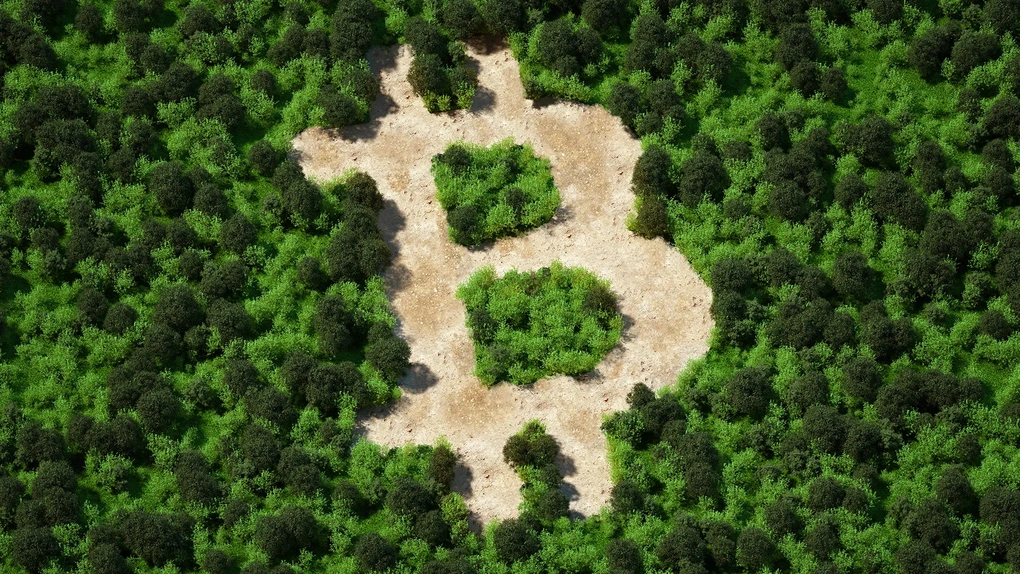Bitcoin - the digital currency that "consumes" electricity
Bitcoin is notable not only for its financial value but also for the enormous amount of energy it consumes. The technological heart of bitcoin—the Proof of Work (PoW) mechanism—requires miners to use high-powered computers to solve cryptographic problems. Whoever solves the problem first validates the new block of transactions and receives a reward in Bitcoin.
When bitcoin first came out, personal computers were powerful enough to mine it. But as more people poured in, the difficulty increased, forcing mining farms to invest in thousands of specialized ASICs to keep up with the speed of the algorithm. That caused electricity consumption to skyrocket.
As of 2018, the bitcoin network consumed as much electricity as the entire countries of Nigeria or Denmark. A single bitcoin transaction can consume more than 1,100 kWh—about the amount of electricity an American household uses in more than a month.

Bitcoin is accused of consuming electricity like a country, emitting gases like a factory and creating mountains of electronic waste and is considered the "culprit" of environmental damage (Photo: Getty).
Not only does bitcoin consume electricity, it is also accused of harming the environment on four fronts:
CO2 Emissions: The majority of Bitcoin mining energy still comes from coal or gas, which are major emitters. It is estimated that at one point, up to 90% of the electricity used to mine Bitcoin came from fossil fuels.
Cooling Water Consumption: Miners generate a lot of heat and require large cooling systems, consuming tens of thousands of liters of water per transaction.
E-waste generation: Miners become obsolete quickly, often being replaced after 1-2 years. The result is thousands of tons of toxic e-waste.
Massive Electricity Consumption: The total electricity consumption of the bitcoin network is sometimes equal to that of a medium-sized country.
For example, each bitcoin transaction is said to generate 620kg of CO2, millions of times more than a VISA card transaction. Bitcoin mining is also said to be more polluting than gold mining.
Even companies that have been supportive of bitcoin have been hesitant. Tesla stopped accepting bitcoin payments in 2021, citing environmental concerns. Meanwhile, ethereum, the second-largest cryptocurrency, is switching to a Proof-of-Stake (PoS) mechanism starting in 2022 to reduce energy consumption.
Bitcoin world fights back, is bitcoin "going green"?
The bitcoin community, however, has not sat still. They have criticized many of the “shocking” studies as outdated and inaccurate. According to the Digital Asset Institute (DARI), a study from 2018 has been misquoted thousands of times by 2024, while only 2% of articles accurately reflect reality.
Many also argue that comparisons between bitcoin and VISA are flawed: Visa only processes transactions, while bitcoin handles both storage and verification without the need for an intermediary.
Instead of just protesting, the bitcoin mining industry has also made some notable efforts:
Switching to renewable energy: Many mining pools are using solar, wind, or hydropower. Ethiopia, for example, uses clean energy from the Grand Renaissance Dam to mine bitcoin.
Utilizing surplus electricity: Some mining facilities choose to use excess electricity from the grid - which would otherwise be wasted.
Equipment Optimization: Companies are improving technology to reduce electricity consumption per unit of bitcoin mined.
Some studies in 2024 show that the share of renewable energy in bitcoin mining has surpassed 50% and is rising. Some reports even claim that new bitcoin mining has reduced global CO2 emissions, by tapping into surplus energy or “crowding out” in remote areas.
Despite its “greener” credentials, bitcoin still faces skepticism. Because of its decentralized nature, no one can accurately measure the total CO₂ emissions of the entire network. Some companies’ claims of being “carbon neutral” are also not transparently verifiable.
One controversial example is a video by Pierre Rochard (Riot Platforms), in which he measured CO2 levels at a mining facility and claimed low emissions. But scientists argued that the equipment he used did not measure emissions from electricity generation, which accounts for the majority of emissions.
Additionally, some people ask: The traditional banking industry also consumes huge amounts of electricity (for office buildings, data centers, ATMs...), so is it fair to criticize bitcoin alone?
Source: https://dantri.com.vn/kinh-doanh/bitcoin-tieu-ton-dien-nhu-mot-quoc-gia-thai-khi-doc-nhu-nha-may-20250526162939251.htm


























![[Photo] National Assembly Chairman attends the seminar "Building and operating an international financial center and recommendations for Vietnam"](https://vphoto.vietnam.vn/thumb/1200x675/vietnam/resource/IMAGE/2025/7/28/76393436936e457db31ec84433289f72)









































































Comment (0)